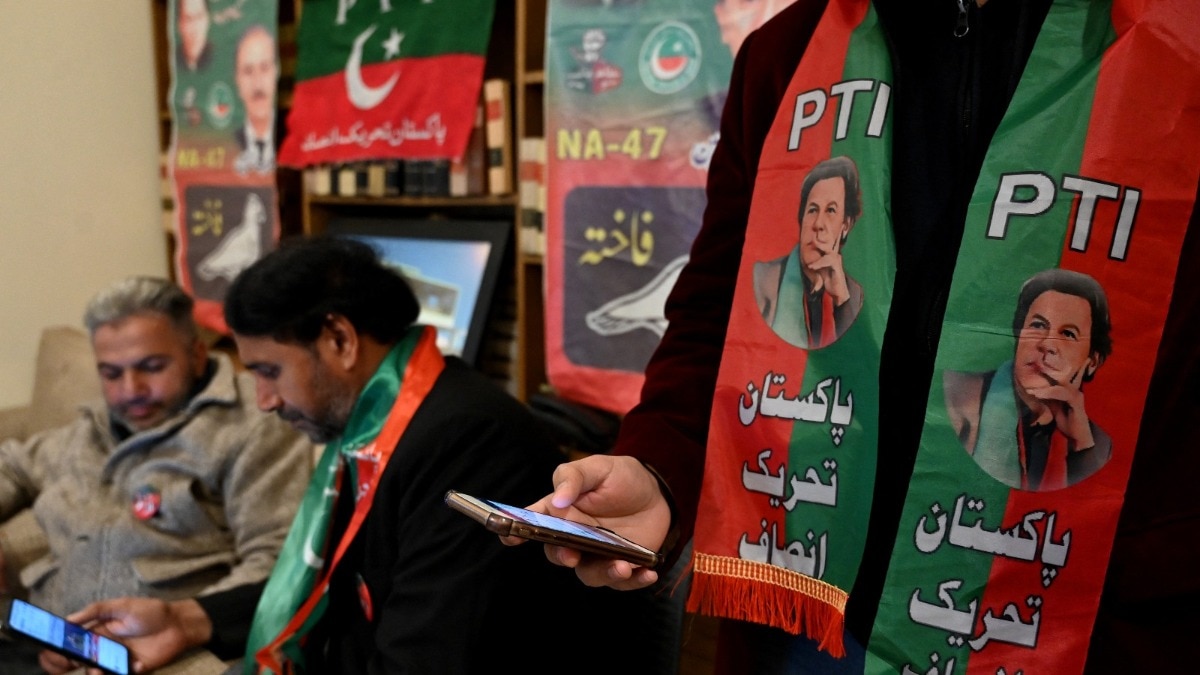2024-02-07 11:53:42
The general elections in Pakistan are a litmus test for its democratic resilience. More than that, it is a test of the newly-found capabilities of artificial intelligence. AI’s generative powers have filled the Pakistani social media with superman images of its jailed former Prime Minister Imran Khan and enabled his party to take his virtual avatar to the masses against all odds.
So far, debates around AI in elections have been dominated by threats of misinformation and fake news, like in the polls of Taiwan and Argentina. Pakistan’s case, however, is the first where AI has been deployed to overcome state curbs that pro-democracy activists see as unjustified. The outcome of the February 8 elections will be a major driver of the good vs bad debate around AI.
From AI-generated posters that possess the capacity to invoke human sentiments, and voice-cloned speeches, to virtual rallies or jalsa on TikTok and AI-generated videos of him languishing behind bars – Khan’s embattled Pakistan Tehreek-e-Insaf (PTI) has resorted to novel tactics to engage with voters.
As the elections picked up pace, PTI workers last month started circulating a four-minute-long video address by Khan on TikTok. It turned out, Khan never delivered that speech. The speech was generated using AI tools after converting a handwritten note smuggled out of Khan’s cell into an audio file in his cloned voice interspersed with clips from his past speeches. Khan’s party is employing generative AI for voice cloning to prepare new speeches in his voice, based on notes passed to his lawyers.
He reportedly sends a shorthand script from inside the jail which is then fleshed out into his rhetorical lingo using dubbed audio from AI firm ElevenLabs, which boasts the ability to create a “voice clone” from existing speech samples. In addition, his party is using AI-generated videos and images of Khan to reshape the narrative.
With innovative methods, his party is making headway to keep the voters energised and informed on the symbol to vote, nearest polling stations etc. Virtual rallies on TikTok, an interactive webpage and a chatbot on their Facebook page are being used to disseminate information about local candidates ahead of the polling date. The PTI also held its first TikTok rally last month and launched its election manifesto online this week.
Khan’s AI-created avatars – portraying him in Superman costume, his calm and resilient composure before a court of kangaroos, and featuring his jail ID ‘Prisoner No. 804’ – are a rage among PTI cadre and his sympathisers.
Authorities in Pakistan are reported to have disrupted internet connectivity and blocked access to social media sites nationwide on February 4 as the party launched online fundraising campaign. The national and global telethon for the fundraiser was organised to bypass a local media ban and government crackdown on physical gatherings of PTI. In opinion polls, the party is rated as the largest national political force, with Khan being the most popular politician.
NetBlocks, an independent global internet monitor promoting digital rights, cybersecurity, and governance, confirmed the disruption in the run-up to and during the online campaign activity as highlighted by PTI officials.
“The incident is consistent with previous social media filtering which have all been imposed during opposition party rallies or speeches by opposition leader Imran Khan,” the UK-based watchdog said.
Khan’s party recently appealed to US billionaire Elon Musk for providing Starlink-enbled internet access in Pakistan to overcome the blackouts. Starlink is a project by SpaceX, the company founded by Musk, to provide high-speed internet access to anywhere on the planet using a constellation of thousands of satellites. Musk had previously offered to provide Starlink access in Ukraine during the war with Russia.
In another tech-driven solution, PTI members have devised an interactive webpage (azaadvote.com) to assist users in locating their nearest polling booth, identifying party candidates in their respective constituencies, and recognising a variety of symbols allocated to them. PTI’s iconic symbol was stripped by Pakistan election watchdog over “technical grounds”. Its candidates, fighting polls as independents, have been assigned peculiar symbols like beer bottle, hookah, shoe, a brinjal (baigan), keychain, fakhta (a type of bird), peacock, bowl, cricket stamps, cot wicket, racket, pomegranate, and violin etc.
Party members also launched a symbol search feature in the #Raabta app, which can also be used without the internet. This initiative is critical, particularly at a time when the regime enforces an internet shutdown during the election period.
Online rallies organised on social media platforms like TikTok, Instagram, and YouTube have attracted thousands of viewers. The telethon for a fundraising event in January had over 4.4 million views, as per YouTube data accessed by India Today’s OSINT team, which shows a significant spike from their first virtual rally in December with 886k views. PTI is running a virtual campaign using the hashtag #PTIVirtualJalsa with over 900 tweets on X (formerly Twitter).
Despite being barred from holding political office by a court last year, Khan’s popularity and PTI’s adept use of technology have cemented his ongoing visibility in the media and maintained a strong connection with voters.
Tune In
imran khan, pakistan, imran khan PTI, jailed Imran Khan AI use, jailed Imran khar, imran khan arrested, Pakistan Tehreek-e-Insaf
Source link
![]()
